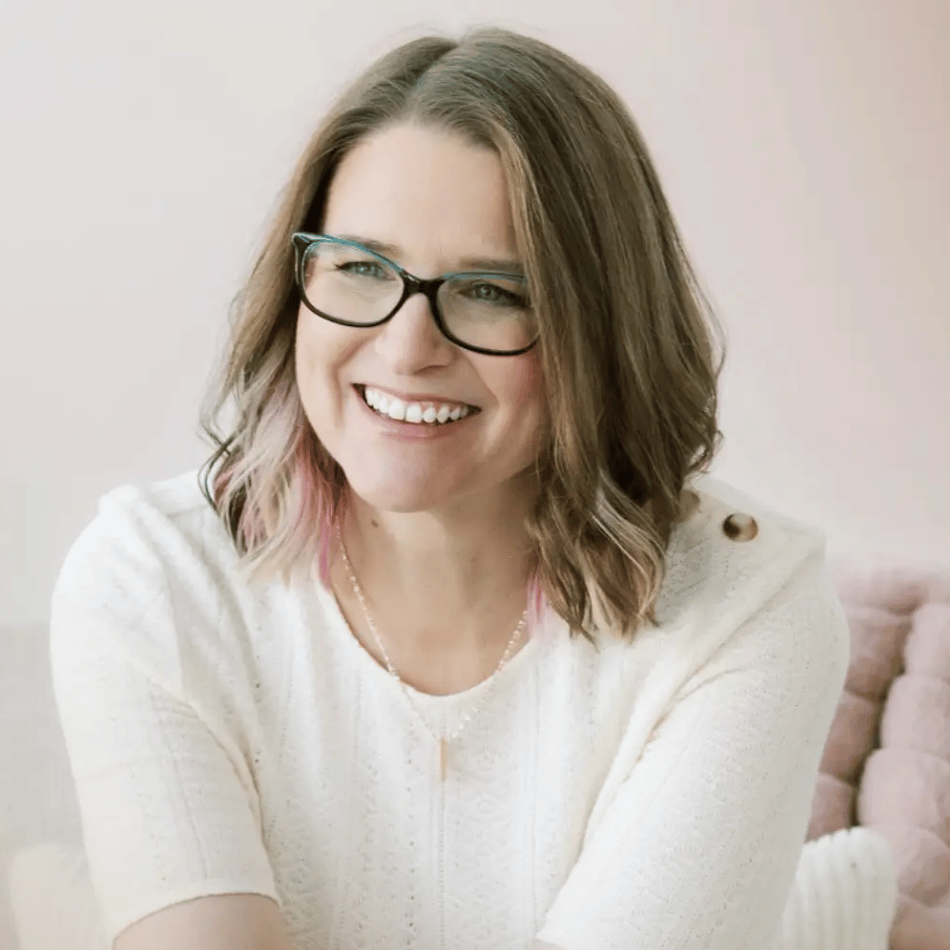
couples counseling
Couples Counseling in Austin, TX
All relationships are bound to hit bumps in the road. However, you don’t have to wait for things to get rough to strengthen your bond. Working with an Austin marriage counselor can help you and your partner deepen your connection–and prevent future issues.
meet your austin couples therapist
alissa camacho, lpc, lmhc
Credentials: Licensed Professional Counselor (TX), Licensed Mental Health Counselor (WA)
Clientele: Adults, couples
Location: 2525 Wallingwood Dr Ste 802, Austin, TX 78746
Virtual therapy: Available
My name is Alissa Camacho. I'm a Licensed Professional Counselor (LPC) specializing in anxiety, self-esteem, and relationships in Austin, TX. Over the years, I have found the process of supporting couples to be gratifying for a variety of reasons. I enjoy hearing the love stories shared by new clients, the memories that partners share about what drew them to one another, and the highlights of the life they've shared together. Most importantly, I value the opportunity I'm offered to help new couples obtain the skills needed to move forward and build a healthy relationship that makes life together worth pursuing.
In my clinical work as a therapist, I've spent the last few years working for nonprofit organizations and group practices that have provided me with a space to expand my knowledge and skillset, to understand how to work with adults in complex family dynamics and life circumstances, including trauma due to environmental difficulties, life transitions, and barriers in communication. It has been pivotal in growing the desire I have to work with individuals and couples seeking support in their relationships in Austin.
More couples therapy resources
3 highly recommended Austin couples counselors
Finding the right fit is a crucial part of effective couples counseling. Here, I’ve compiled a list of other local couples therapists, professionals I trust and actually refer clients to when needed. My goal is to connect you with the support you’re looking for, even if it means working with someone else.
Carly Stout (Boeselt), MA, LPC-S
Good fit for: Couples, families, trauma, EMDR, grief & loss
Credentials: Licensed Professional Counselor Supervisor
Clientele: Teens, adults, couples, families
Location: 3625 Menchaca Rd Suite 202 Austin, TX 78704
Virtual therapy: Available
Emily Harrington-Cheney, LPC, IRT
Good fit for: Couples, Imago method, premarital counseling, family of origin issues
Credentials: Licensed Professional Counselor
Clientele: Adults, couples
Location: 601 West 18th Street, Austin, TX 78701
Virtual therapy: Available
Steve Cheney, LPC, IRT
Good fit for: Couples, Imago method, premarital counseling
Credentials: Licensed Professional Counselor
Clientele: Teens, adults, couples
Location: 1015 Beecave Woods Drive, Suite 300C, Austin, TX 78746
Virtual therapy: Available

common reasons why couples seek counseling
-
You're not alone in this. Unfortunately, growing up, most individuals are not taught enough about the basics of communication skills. Interestingly, although seeking help for this tends to be one of the top reasons for relationship breakups and divorce, it is a highly resolvable issue when it is targeted with mutual intention and consistency.
-
Although the presence of conflict is relatively normal, as it follows the need for communication skills, we're typically also not well-versed enough about the art of resolving a conflict. Ultimately, we may find ourselves in a cycle that too often feels unbreakable. However, there is hope for learning to fight fairly (yes, it's a thing).
-
We tend to ignore or miss the signs that our boundaries are not being respected and/or that we are not respecting someone else's boundaries. Taking note of the barriers to setting boundaries effectively and, in turn, breaking down those barriers will help you get to a place that feels both safe and comfortable.
-
Difficulties with attachment have a tendency of hanging out in the background. Over time, these issues may begin to show and cause problems. As attachment issues often begin in childhood, it's important to be patient, as well as vigilant of the long term impact these issues can have on a person's mental health when ignored.
-
As we develop as adults, we will continually experience a series of life transitions, both short term and long term. This can include a new job, loss, and moving away. Preparing for marriage with your significant other, for example, is also important. You might consider premarital counseling to be a great option for your relationship as you venture into this new phase of life.
-
Sometimes it's hard to recognize at first, but challenges with boundary setting can significantly damper the quality of your life. We often realize we're not living for ourselves, but living to appease those in our environment. This could be with friends, family, partners, or in professional relationships.
-
Experiencing trauma prior to or while in a relationship can present a variety of difficulties. Knowing the triggers can help alleviate the stress of how the trauma is impacting your daily lives. Some examples of trauma include grief and loss, emotional abuse, physical abuse, and drug abuse.
-
Emotional distance sometimes has a way of taking our breath away. This can be as a result of a lot of things- stress, anxiety, depression, or perhaps a major life transition. Regardless, the important thing is to acknowledge that the emotional distance exists in your relationship and that repair is needed.
faqs about couples therapy in austin, tx
-
There is no "right" or "wrong" approach to marriage counseling. Therefore, couples counselors in Austin may employ different approaches when working with new clients through relational issues. It's helpful to take note of the approaches your potential counselor may intend to use. This can be useful to narrow what you're looking for as you prepare to make a decision.
We can all understand the concept of marriage on paper. However, each marriage holds a combination of traits that are unique to you and your spouse. To be a positive member of support to new clients, I focus on taking an approach that is integrative. This allows me to utilize parts of a select few modalities I find to be most effective for your relational traits and challenges as a couple. Where one individual may be dealing with anxiety or depression, the other may be dealing with grief and loss or the trauma of their past or present. In a situation like this, it's clear that the kind of resolution needed for each person will look different.
As a couples counselor, I will take the time to make space for, and acknowledge, the difficulties that come with each individual struggle. I will also assist in providing an understanding for how these issues have blended, caused emotional separation, and how it can be resolved with intention.
Given the complex and serious nature of supporting couples through very difficult relational transitions, I prioritize creating a space that is a balance between productive, relaxed and, on occasion, humorous. I find this to be both effective and critical to the process of creating change in the therapeutic space. Couples can find it difficult to open up and share their absolute truth to someone they hold a deep, intimate connection with (their spouse) and someone they know simply from the writings of their website (their therapist). I encourage you to join the therapeutic space as the truest forms of yourselves in an effort to build rapport as your personal growth team.
-
Gottman Method
One of my favorite methods to use, this modality and structure was developed by Drs. John Gottman and Julie Gottman, two incredible psychologists, researchers, and a married couple. The beauty behind the Gottman Method comes from the very unique research the Gottmans completed on couples over several years. According to this method, there are four kinds of negative interactions that can be lethal to a relationship. They call these the Four Horsemen of The Apocalypse- criticism, contempt, defensiveness, and stonewalling. In The Seven Principles for Making Marriage Work, authors Dr. John Gottman and Nan Silver say, "the four horsemen alone predicts divorce with an 82 percent accuracy."
With such consistent and groundbreaking research, this modality is incredibly beneficial in allowing me to support individuals and couples in challenging the behaviors that stem from deep-rooted problems. More times than not, these behaviors are solvable rather than unsolvable.
Emotionally Focused Therapy
Another evidence-based modality I frequently use for couples work is Emotionally Focused Therapy (EFT). To get a basic understanding of what this modality is, we can start with its name! The Emotionally Focused Therapy model focuses on the emotional response system of both individuals, including the regulation of emotions.
More specifically, EFT is modeled around attachment theory. In using EFT, we'll learn about the development of your emotional connections, such as the parent-child relationship and how bonds were and are presently formed for you. This will lend a lot to telling the story of who each of you are, the kind of impact those experiences have had in the development of your adult identities, and where there are opportunities to create meaningful change in how you communicate with one another. Diving into these experiences will teach the both of you how to create connections that are supportive, safe, and secure.
-
Per the American Psychological Association, couples counseling shows an effectiveness rate of about 75% when Emotionally Focused Therapy is used for treatment. This statistic speaks volumes about the importance of emotionally focused therapy work, especially when taking into consideration the fact that communication issues often stem from emotion-related difficulties.
Many therapists find it difficult to guarantee the outcome of couples services. This is because it is well understood in the field of psychotherapy that the effectiveness of therapy is dependent on many factors, including consistency in attendance of the therapy sessions, at what point you seek therapy (too often, couples wait until they're in crisis), follow-through with practicing the coping strategies and language, and issues related to the safety of each individual (i.e. the presence of abuse, violence, other crimes, etc.).
-
Couples will often seek therapy for issues such as communication barriers, difficulty building trust, toxic behaviors, emotional distance, cheating, anger issues, and boundary setting, to name a few.
It is a common and unfortunate misconception that your relational problems have to be "bad enough" to warrant marriage counseling. Many couples don't realize this until it's too late. Often, this is followed by another painful misconception that weighs heavy on those who hear it and also really need it: that couples therapy doesn't actually work. Sadly, these are the leading reasons for why couples don't start therapy until they are in crisis. In reality, what is most important about making this decision is to consider how your relational problems are making you feel, and not whether or not they are "bad enough". So, don't wait!






